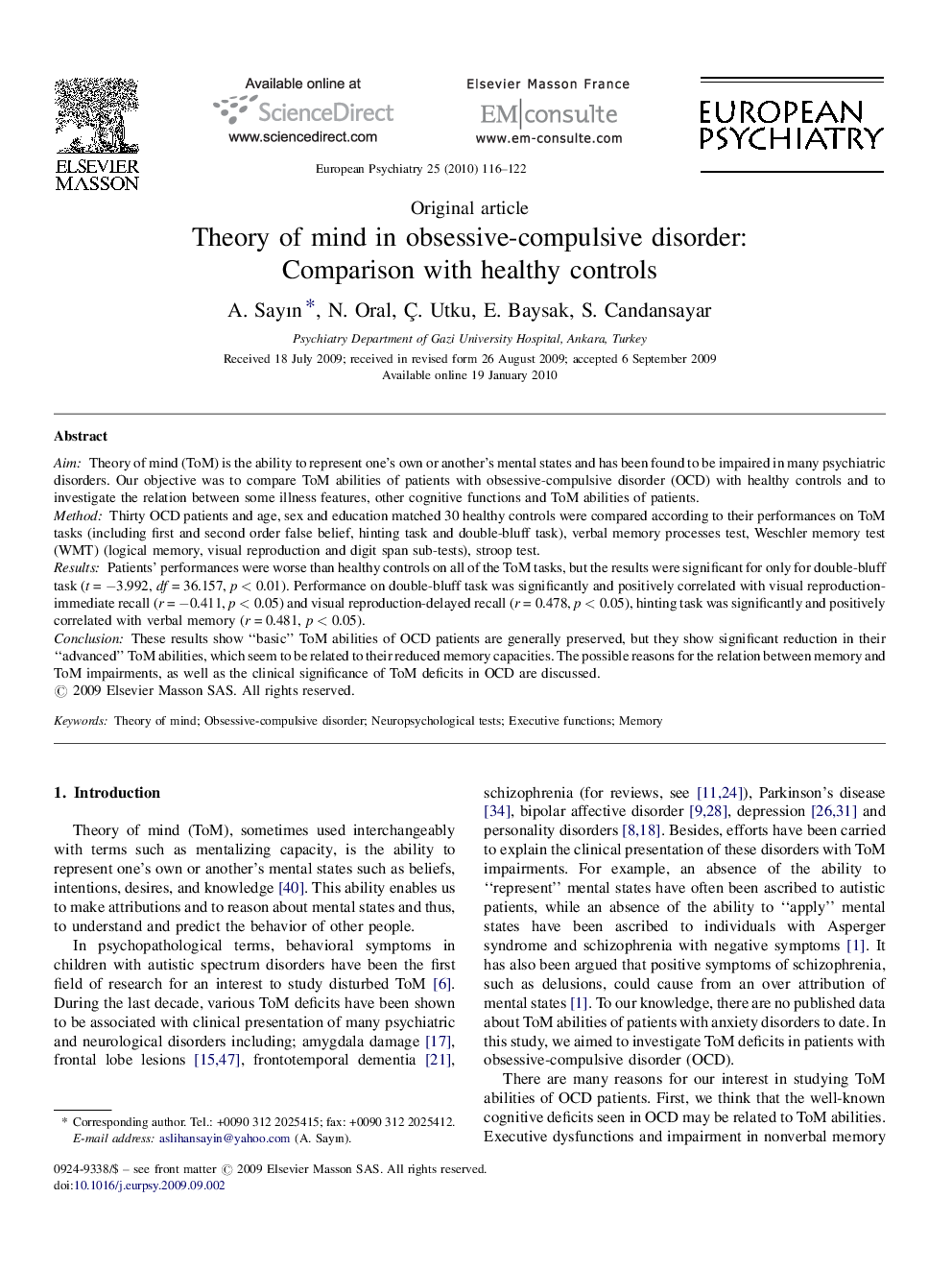| کد مقاله | کد نشریه | سال انتشار | مقاله انگلیسی | نسخه تمام متن |
|---|---|---|---|---|
| 4184901 | 1277332 | 2010 | 7 صفحه PDF | دانلود رایگان |

AimTheory of mind (ToM) is the ability to represent one's own or another's mental states and has been found to be impaired in many psychiatric disorders. Our objective was to compare ToM abilities of patients with obsessive-compulsive disorder (OCD) with healthy controls and to investigate the relation between some illness features, other cognitive functions and ToM abilities of patients.MethodThirty OCD patients and age, sex and education matched 30 healthy controls were compared according to their performances on ToM tasks (including first and second order false belief, hinting task and double-bluff task), verbal memory processes test, Weschler memory test (WMT) (logical memory, visual reproduction and digit span sub-tests), stroop test.ResultsPatients’ performances were worse than healthy controls on all of the ToM tasks, but the results were significant for only for double-bluff task (t = −3.992, df = 36.157, p < 0.01). Performance on double-bluff task was significantly and positively correlated with visual reproduction-immediate recall (r = −0.411, p < 0.05) and visual reproduction-delayed recall (r = 0.478, p < 0.05), hinting task was significantly and positively correlated with verbal memory (r = 0.481, p < 0.05).ConclusionThese results show “basic” ToM abilities of OCD patients are generally preserved, but they show significant reduction in their “advanced” ToM abilities, which seem to be related to their reduced memory capacities. The possible reasons for the relation between memory and ToM impairments, as well as the clinical significance of ToM deficits in OCD are discussed.
Journal: European Psychiatry - Volume 25, Issue 2, March 2010, Pages 116–122